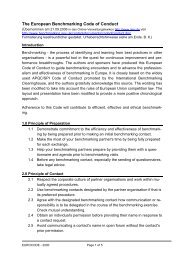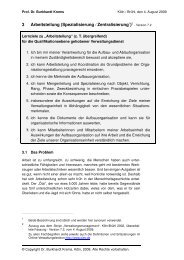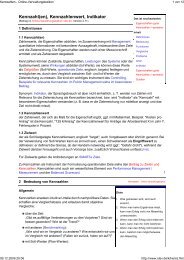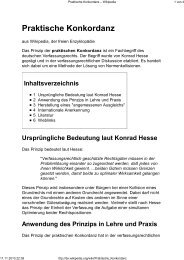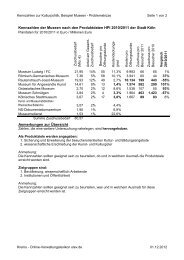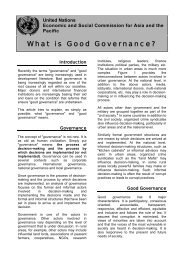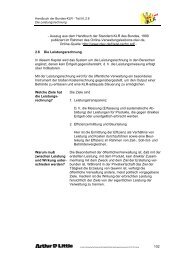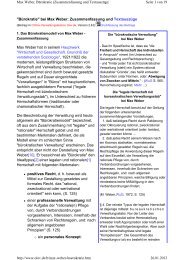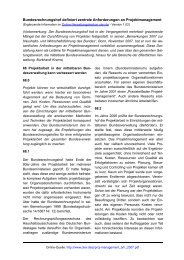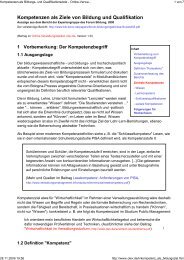Strategy Survival Guide
Strategy Survival Guide
Strategy Survival Guide
You also want an ePaper? Increase the reach of your titles
YUMPU automatically turns print PDFs into web optimized ePapers that Google loves.
in The Magenta Book) are rigorous methods of consolidating what is already known about a topic, and<br />
should be explored before initiating any new systematic data capture. Useful data sources include:<br />
Bank of England Monetary and Financial Statistics: The Bank of England publishes a large range of<br />
banking, monetary and financial statistics. Most of the series can be download as Excel files. Perhaps the<br />
most useful publication is the annual Statistics Abstract.<br />
CIA World Factbook: CIA site providing a host of economic and other data, on a country basis. Simply click<br />
on the country.<br />
EconData: (University of Maryland): US and international economic time series data.<br />
EcoWin: this is a Swedish site, much of which requires registration, but it does have a free graphing facility<br />
from its databases, which cover all the major countries. The graphs are excellent and can easily be copied<br />
and pasted into PowerPoint or Word documents.<br />
Eurostat: provides selected European Community statistics.<br />
IMF: country reports for all countries of the world can be found on the IMF website. Three particularly useful<br />
publications are the World Economic Outlook, Annual Report and International Capital Markets. Each of<br />
these has a large statistical annex.<br />
Financial Times: provides archive articles and statistics on a wide range of economic and business related<br />
issues.<br />
<strong>Guide</strong> to Official Statistics: this is a directory of all statistical censuses, surveys, administrative system,<br />
publications and other services produced by government and a range of other organisations in the UK. It was<br />
produced by the former Office of National Statistics (ONS) in 2000, so may now be a little out of date.<br />
HM Treasury: a useful source of UK data. The Economic Data and Tools, and the Budget sections are<br />
particularly useful. The Economic Data and Tools section contains Latest Economic Indicators which in<br />
addition to providing recent data releases, also contains the Pocket Data Book. This is a very useful monthly<br />
publication that downloads as an Excel Spreadsheet, with 28 tables containing time series data for a range<br />
of national and international indicators, going back to 1980.<br />
Institute of Fiscal Studies: an independent research body, looking particularly at the UK tax system,<br />
considering the likely effects of fiscal policy on different sections of the population.<br />
MIMAS (Manchester University): stores data from the 1981 and 1991 Censuses, UK government surveys,<br />
international macro-economic time series and geographical and satellite sources. Users need to register with<br />
the service.<br />
National Statistics: National Statistics (formerly ONS) data sets are now freely available. The Time Series<br />
Data section of the website contains PDF versions of many documents, and downloadable Excel files of the<br />
data. Documents include: the Blue Book, the Pink Book, Labour Market Trends, Scottish Economic<br />
Statistics, New Earnings Survey, Family Spending, Social Trends, Regional Trends, Agriculture in the UK,<br />
the Annual Abstract and the Monthly Digest of Statistics. Tables from other publications including Economic<br />
Trends (Monthly and Annual Supplement) and Financial Statistics are also available.<br />
OECD: provides a host of statistics on OECD countries. There is also the OECD Economic Outlook, a sixmonthly<br />
publication which contains macroeconomic data for each of the 30 OECD countries, the EU15, the<br />
Euro area and the OECD as a whole. The data typically covers 20 years with forecasts ahead for the next 2<br />
years.<br />
Policy Library: a social, economic and foreign policy resource that covers a wide range of topics and<br />
sectors, and provides links to additional sources of information on each topic.<br />
The Economist: the website provides archives of previous articles and special reports and surveys. The<br />
Economic Intelligence Unit Country Briefings also provide a good source of country information. Simply click<br />
on the country to get a selection of statistics (under Country Profile), and briefing articles.<br />
UK Data Archive (University of Essex): contains several thousand UK, European and International data sets<br />
for the social sciences and humanities from government, academic and commercial sources. Data sets can<br />
be downloaded from the internet or ordered, although this requires registration.<br />
<strong>Strategy</strong> <strong>Survival</strong> <strong>Guide</strong> – <strong>Strategy</strong> Skills<br />
Page 116



